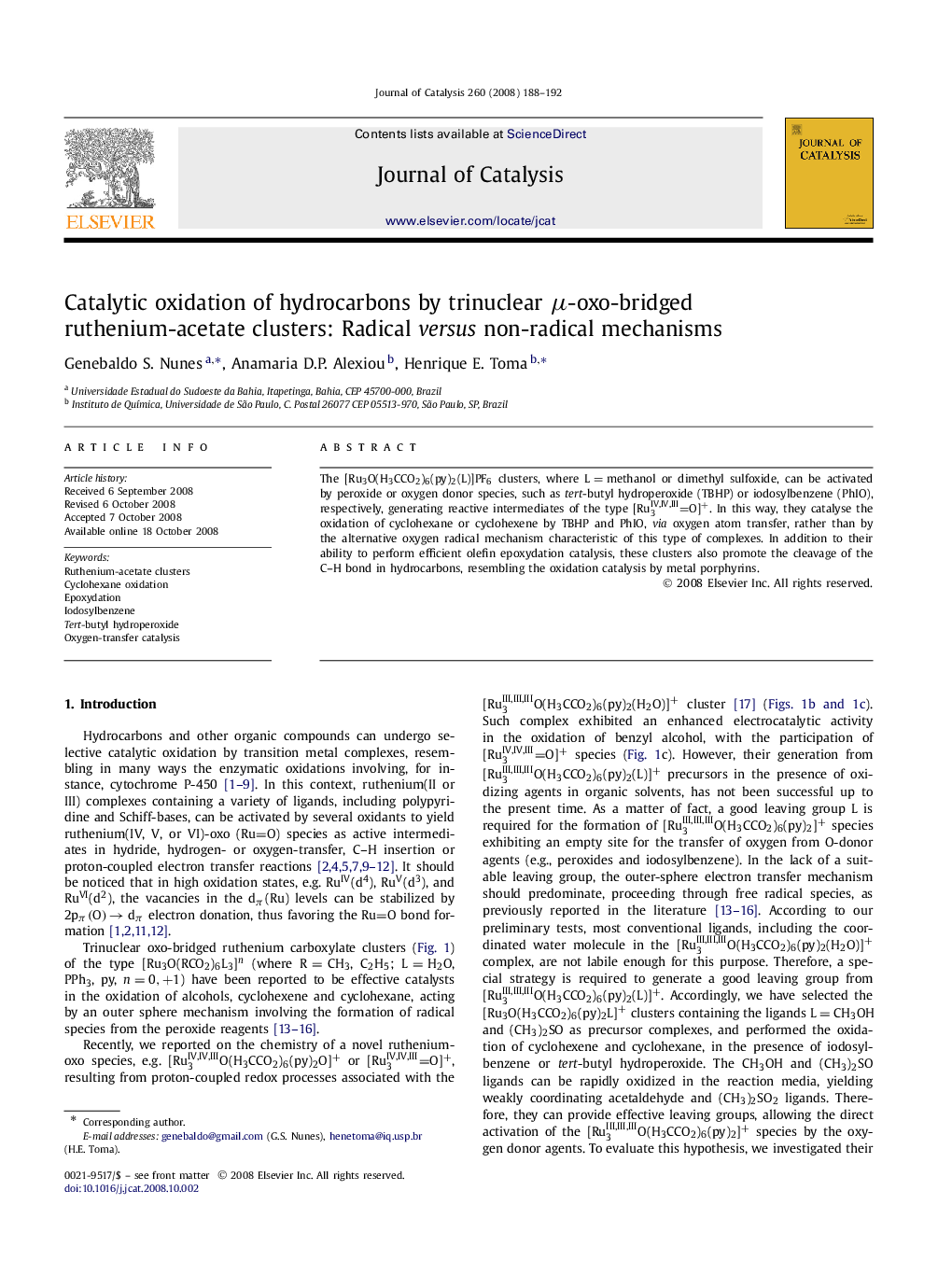| Article ID | Journal | Published Year | Pages | File Type |
|---|---|---|---|---|
| 62574 | Journal of Catalysis | 2008 | 5 Pages |
Abstract
The [Ru3O(H3CCO2)6(py)2(L)]PF6 clusters, where L = methanol or dimethyl sulfoxide, can be activated by peroxide or oxygen donor species, such as tert-butyl hydroperoxide (TBHP) or iodosylbenzene (PhIO), respectively, generating reactive intermediates of the type [RuIV,IV,III3O]+. In this way, they catalyse the oxidation of cyclohexane or cyclohexene by TBHP and PhIO, via oxygen atom transfer, rather than by the alternative oxygen radical mechanism characteristic of this type of complexes. In addition to their ability to perform efficient olefin epoxydation catalysis, these clusters also promote the cleavage of the CH bond in hydrocarbons, resembling the oxidation catalysis by metal porphyrins.
Related Topics
Physical Sciences and Engineering
Chemical Engineering
Catalysis
Authors
Genebaldo S. Nunes, Anamaria D.P. Alexiou, Henrique E. Toma,
